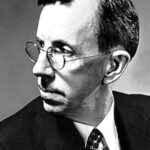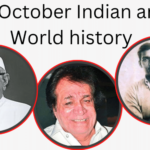Image Courtesy: Google Doodle
Karl Landsteiner (14 June 1868 – 26 June 1943) was an Austrian-born American biologist, physician, and immunologist. He emigrated with his family to New York in 1923 for professional opportunities, working for the Rockefeller Institute.
Early Life And Education
Karl Landsteiner, the distinguished immunologist and pathologist, was born on June 14, 1868, in Vienna, Austria. He was the only child of Leopold Landsteiner, a renowned journalist and newspaper publisher, and Fanny Hess. Tragically, Karl’s father passed away when he was just six years old, leaving him to be raised by his mother, to whom he was deeply devoted throughout his life. His early education culminated in medical studies at the University of Vienna, where he earned his M.D. in 1891. Even as a student, Landsteiner showed a keen interest in biochemical research, publishing a paper on the influence of diet on the composition of blood ash. To further his knowledge in chemistry, he spent several years studying with eminent scientists across Europe, including Hantzsch in Zurich, Emil Fischer in Wurzburg, and E. Bamberger in Munich. This rich educational background laid the foundation for Landsteiner’s groundbreaking work in immunology and pathology.
Career And Achievements
Karl Landsteiner’s career was marked by groundbreaking discoveries in immunology and pathology, earning him a distinguished place in medical history. His most notable achievement came in 1901 with the discovery of the ABO blood group system, revolutionizing the field of transfusion medicine and saving countless lives. For this monumental work, he was awarded the Nobel Prize in Physiology or Medicine in 1930. His research extended beyond blood typing; in 1927, alongside Philip Levine, he discovered the M, N, and P blood factors, and later, the Rhesus (Rh) factor in 1940 with Alexander Wiener, further enhancing the safety of blood transfusions.
Landsteiner’s contributions were recognized with numerous accolades, including his election to the National Academy of Sciences in 1932 and the American Philosophical Society in 1935. He also received the Cameron Prize for Therapeutics of the University of Edinburgh in 1937. Posthumously, he was honored with the Lasker Award in 1946 for his pioneering work. His legacy continues to influence modern medicine, particularly in the fields of immunology and hematology. Landsteiner’s dedication to science and his impact on healthcare exemplify a career dedicated to the advancement of human health and scientific knowledge.
Notable Events And Milestones
Karl Landsteiner’s life and work are marked by significant events and milestones that have had a profound impact on medical science and the world at large. In 1901, he published his discovery of the human ABO blood group system, a monumental achievement that revolutionized the practice of blood transfusion, making it a routine and safe medical procedure. This discovery stemmed from his observation of agglutination in blood and his identification of the antigens responsible for this immune response. Landsteiner’s work extended beyond the ABO system; he also discovered other blood factors, such as the M, N, and P factors in 1927 with Philip Levine, and the Rhesus (Rh) system in 1940 with Alexander Wiener. These discoveries have not only facilitated safe blood transfusions but have also been crucial in understanding hereditary blood disorders and in prenatal medicine where Rh incompatibility can pose risks to the fetus.
In addition to his contributions to hematology, Landsteiner’s research played important role in virology. He, along with Constantin Levaditi, discovered that a microorganism is responsible for poliomyelitis, laying the groundwork for the development of the polio vaccine. This was a significant stride in infectious disease control and public health. For his remarkable contributions, Landsteiner was awarded the Nobel Prize for Physiology or Medicine in 1930. His work has saved countless lives and continues to influence medical practices and research. The impact of his work extends beyond medicine; it has influenced legal and forensic sciences through the use of blood typing in police investigations and paternity tests.
Landsteiner’s legacy is not limited to his scientific achievements; he has also left an indelible mark on society and culture. His work has shaped our understanding of human biology and has had a lasting impact on healthcare. The principles he established are still in use today, ensuring the safety of blood transfusions and organ transplants, and his research has opened doors to new medical and scientific inquiries that continue to benefit humanity. Karl Landsteiner’s life was characterized by a relentless pursuit of knowledge and a deep commitment to improving human health. His discoveries have formed the cornerstone of modern immunology and hematology, and his legacy continues to inspire new generations of scientists and medical professionals. Landsteiner’s work exemplifies the profound impact that dedicated research and scientific inquiry can have on society and the world at large. His contributions have not only saved lives but have also enhanced our understanding of the human body and disease, making him one of the most influential figures in the history of medicine.
Awards And Honors
- Nobel Prize in Physiology or Medicine (1930) for his discovery of the major blood groups and the development of the ABO system of blood typing.
- Elected to the National Academy of Sciences (1932).
- Elected to the American Philosophical Society (1935).
- Awarded the Cameron Prize for Therapeutics of the University of Edinburgh (1937).
- Member of the Imperial Society of Physicians in Vienna (1902).
- Chevalier of the French Legion of Honor (1911).
- Hans Aronson Foundation Prize (1926).
- Honorary foreign member of the German Academy of Sciences (1927).
- Lasker-DeBakey Clinical Medical Research Award (1946).
- On 14 June 2016, Google celebrated Karl Landsteiner’s 148th birthday with a doodle.
Additional Resources
- For an insightful documentary, you can watch the Karl Landsteiner segment on NobelPrize.org, which includes a short clip of him at the Nobel Prize Award Ceremony in 1930.
- Wikipedia offers a comprehensive article on Karl Landsteiner, detailing his life, scientific contributions, and the impact of his work.
- org provides a biographical sketch of Karl Landsteiner, which includes an autobiography written at the time of his Nobel Prize award.
- To understand the significance of his work, the Nobel Prize facts page about Karl Landsteiner is a valuable resource.
Observer Voice is the one stop site for National, International news, Editor’s Choice, Art/culture contents, Quotes and much more. We also cover historical contents. Historical contents includes World History, Indian History, and what happened today. The website also covers Entertainment across the India and World.










